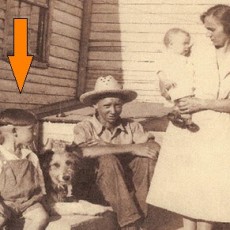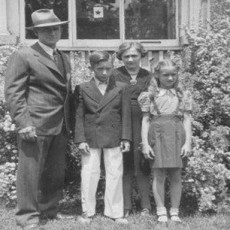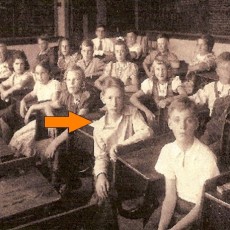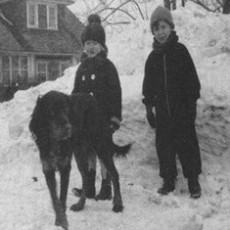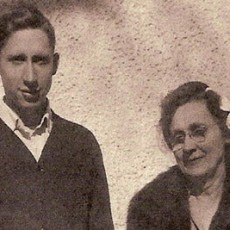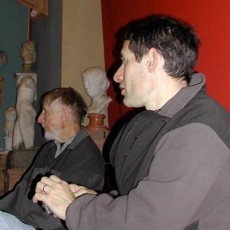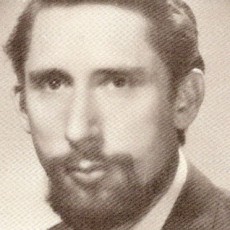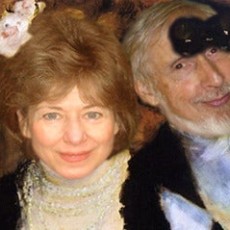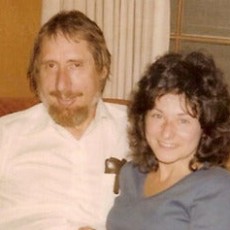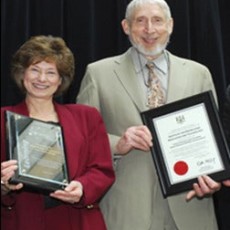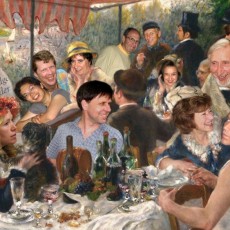Carl Bereiter

Carl Bereiter is a professor emeritus at the University of Toronto and co-founder, with Marlene Scardamalia, of the Institute for Knowledge Innovation & Technology. He is a member of the U.S. National Academy of Education and has been twice a fellow at the Center for Advanced Study in the Behavioral Sciences, most recently for his participation in a study of the cognitive bases of educational reform. Along with Scardamalia, he also developed CSILE, the first networked system for collaborative learning. The current version, Knowledge Forum®, is being used in innovative applications worldwide at all educational levels. Although he has published widely on a variety of topics in instruction, cognitive psychology, and educational policy, Bereiter may be best known for his development of knowledge building theory and the knowledge telling model for writing. His works include: The Psychology of Written Composition, Surpassing Ourselves: An Inquiry into the Nature and Implications of Expertise, and Education and Mind in the Knowledge Age (with Scardamalia).
For more information, visit Carl Bereiter’s Website. To learn more about Carl Bereiter from his family and friends, visit his Reflections. To view photographs from Carl Bereiter’s personal collection, visit his Photo Gallery.
Curriculum Vitae Suggested readingsVisit the video below to watch a short overview of the interview with Carl Bereiter. Otherwise, see all six of the full interviews with Carl Bereiter below.
Video Interviews with Carl Bereiter:
Inside the Academy, based on Bravo’s Emmy award winning show Inside the Actors Studio, features members of the National Academy of Education and others in engaging, informative, and reflective interviews about their personal and professional experiences and accomplishments. Inside the Academy’sguest, Dr. Carl Bereiter, will be asked questions about his childhood, research interests, and current issues in education in the following segments.
Born in Wisconsin and raised in Waukegan, Illinois, Dr. Carl Bereiter describes his agrarian upcoming as coming “straight out of Grapes of Wrath.” Experiencing childhood during the Great Depression, Bereiter fondly remembers his two-room, rural school house in which four grades were collapsed into each room. An avid reader of the classics while still in high school, Bereiter joined a local book club, the Pseudo Intellectuals, where he alarmed his mother with his commentary on fundamentalism and the Bible. His remarks were later published in the local Kenosha News. Recalling the emotions he experienced with the birth of his daughter, Bereiter comically compares his first feelings of parenthood to those likely felt by an American Shorthorn cow-a need to nurture accompanied by complete bewilderment. Find out more about Dr. Bereiter’s childhood and youth in this clip of the show!
While his sister believed he would become a cartoonist or classical pianist, Dr. Carl Bereiter began his post-secondary education at the University of Wisconsin. After earning his Bachelor’s and Master’s Degrees in Comparative Literature and his Ph.D. in Education, Bereiter began studying cognitive psychology and became interested in the writing process. Most widely recognized for his work with disadvantaged pre-school students in 1966, Bereiter and his colleague Siegfried Engelmann used humor and “direct verbal instruction” to accelerate students’ learning processes. In conjunction with his wife and fellow educational researcher, Marlene Scardamalia, Bereiter created both the knowledge building theorywhich involves the creation or modification of public knowledge and the knowledge telling model, a writing process whereby ideas are retrieved from memory and transferred into the text. Watch this clip to learn more about Dr. Bereiter’s influential research.
Citing the importance of democratizing education, both identifying and applying successful best practices, and remedying chronically ineffective techniques, Dr. Carl Bereiter has been recognized along with Piaget and Vygotsky as one of the Fifty Modern Thinkers on Education. When asked to consider his most important contribution, Bereiter highlights his influence in “changing the way people talk about things [which] to a large extent [involves] changing the way people think about things.” According to Bereiter, “Ideas are a dime a dozen;” however, Bereiter believes that a society comfortable working with ideas will require both quality technology and pedagogy to teach students to work creatively with knowledge and ideas. In this clip, you can learn more about Dr. Bereiter’s latest, most innovative ideas.
Crediting his supportive parents for his early academic success, Dr. Carl Bereiter remains inspired by the “marvelous things little kids do…” and insists that knowledge is his favorite word. Convinced he would have been successful as a psychologist or journalist, Bereiter recounts his accidental declaration of Comparative Literature as a major at the University of Wisconsin only after learning Humanities was not an option. Wishing to bring an end to partisan politics and urging creative educational reform, rather than simply encouraging teachers to “teach harder,” Bereiter inspires us to create knowledge or ingenuity, and avoid mediocre reform altogether. Watch this clip now to hear Dr. Bereiter answer both challenging and intriguing philosophical and introspective questions.
Dr. Carl Bereiter divides his “words of wisdom” into three sections targeting a general audience, educators, and educational technologists, respectfully. To the lifelong learner, Bereiter suggests six basic steps for continued growth. He further encourages educational researchers to carefully choose topics that show kids how smart they are. For educational technologists, Bereiter offers specific suggestions for teaching students technology skills, using web-based communities properly, and running an IT office. Tune in and watch this clip as you will want to hear what he has to say about lifelong learning, conducting research, and educational technology.
In this clip, Dr. Carl Bereiter also responds to audience questions regarding the difference between half day and full day pre-K, choosing best practices, and the effects of a test-driven curriculum. Bereiter challenges “educational folk theory” when he questions audio, visual, and kinesthetic learning and brain-based theory, that is based on a lack of evidence. Also see what Dr. Bereiter has to say about the results of No Child Left Behind.
Amrein-Beardsley, A. (2010, March 16). Inside the Academy video interviews with Dr. Carl Bereiter [Video files]. Retrieved from /inside-the-academy/carl-bereiter

Dr. Jeanne Bereiter, M.D.
Dr. Carl Bereiter’s daughter, Dr. Jeanne Bereiter, M.D., shares her father’s first feelings about parenthood which he often compared to those likely experienced by an American Shorthorn cow-a need to nurture accompanied by complete bewilderment! Jeanne admires her father for his “incredible ability to draw analogies from other fields and to explain complex subjects in simple ways that laypeople and professionals from other fields can understand.” Carl’s invaluable contributions to educational research have shaped the work of those both within the profession and beyond.
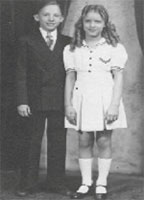
Joan Bereiter Meyering
Characterizing her brother, Dr. Carl Bereiter, as a “head in the clouds genius” and a very deep thinker, Joan Bereiter Meyering fondly recalls their shared childhood on a small farm in rural Wisconsin. As Carl’s only sister, Joan and her brother developed a special bond, despite their distinct memories of events from their youth. Both having attended a two-room country school through the primary grades, Joan remembers Carl as innovative and imaginative with “a wry sense of humor.” Displaying his propensity for conducting research at an early age, Carl created a “Feline IQ Test” and required the farm cats to “walk up and down an inclined board.” Joan comically admits that “no results were ever published.” Joan also credits Carl with inventing the first “word processor” by pounding large nails into a flat board on which he could arrange sentences written on paper. Although she cautions against allowing Carl to use a hoe in the vegetable garden, Joan praises his imagination and talent: “I always knew there was no limit to what he could accomplish in his life.”
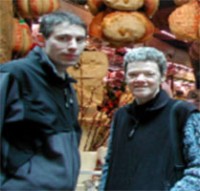
Tom Bereiter
Recalling their father’s propensity for telling jokes, Tom Bereiter and his sister, Jeanne, fondly remember bedtime at home with Dr. Carl Bereiter. Sharing their father’s “little elephant joke,” the Bereiter children offer a fresh perspective on the world-renowned educational researcher whose family and friends have always enjoyed his creativity and sense of humor.

Dr. Siegfried “Zig” Engelmann
Hired by Dr. Carl Bereiter without having an advanced degree or any formal training in education, Dr. Siegfried “Zig” Engelmann became one of several mavericks in the Bereiter Engelmann Preschool Program. The project, based at an academic preschool which had been opened by Carl and Zig and largely served at-risk African American students, succeeded in accelerating the performance of the participating students. By teaching “reading, math, and language, as well as singing and art,” Carl and his colleagues “increased the IQ’s of the disadvantaged preschoolers” over the course of the four-year study. Recalling Carl’s sense of humor in the classroom, Zig describes an incident after the daily music period whereby Carl attempted to loosen a wedged piano key to the delight of his preschool audience. Characterizing his friend and colleague as a “renaissance educator,” Zig highlights Carl’s contributions and critiques “in a wide spectrum of educational and psychological areas-experimental design and measurement; methods of training at-risk students; philosophy and practices in education, psychology, and early childhood education; models for teaching subjects such as reading and math; and models of cognition.” “Intellectually vigorous, prosperous, and unassuming,” Carl has served as a mentor, researcher, and scholar without “postur[ing] himself as an authority figure, but rather a guy who could apply his knowledge and skills to figure out things and to help others understand them better.”

Jean Osborn
Jean Osborn, a teacher and program developer, decided to join the Bereiter Engelmann Preschool Program after a colleague advised her that “a nut like you might get along with a nut like Carl Bereiter.” Credited by Carl with bringing sanity to the project, Jean is admired by her peers, especially Carl, for being “very level headed” and knowing “how to deal with the practical world.” Instrumental in indentifying students for participation and arranging their transportation, Jean assisted Carl and his colleague, Dr. Siegfried Engelmann, in their use of humor and “direct verbal instruction” to accelerate students’ learning processes.
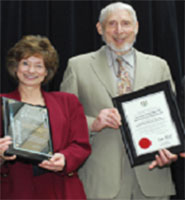
Dr. Marlene Scardamalia
Dr. Marlene Scardamalia first earned Dr. Carl Bereiter’s respect as a researcher whose results demonstrated weaknesses in one of his research programs. Validating her conclusions through his own classroom observations, Carl has since collaborated with Marlene on cognitive and writing research for more than 35 years. Happily married for many years, Carl and Marlene have developed “knowledge building as a distinctive educational approach” and recruited scholars internationally to assist in their work, founding research centers in Italy, Finland, Hong Kong, and Singapore. Citing their knowledge telling model as the “single key piece of work” in writing research, Carl describes this model as a “marvelous system for doing writing assignments in school” in that students become “engaged in a process…where ideas [are] at the center…” Proclaimed by Marlene and other colleagues to be autobiographical, Mr. Sleeby is a character, created by Carl with the help of Marlene and others, who is featured in a series of thinking stories. Mr. Sleeby and his associates each suffer from a specific and often humorous cognitive deficit of one sort or another-Mr. Sleeby, for example, is the “ultimate concrete thinker who cannot handle abstractions” and also terribly forgetful! Praised by his wife, Dr. Marlene Scardamalia, for his recognition along with Piaget and Vygotsky as one of the Fifty Modern Thinkers on Education, Carl was selected for his desire to “extend the limits of the possible” in education.
